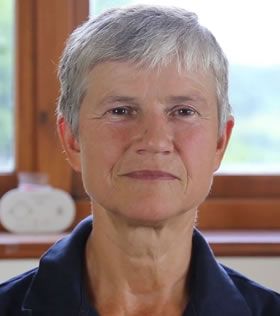
Rebecca Cotterall developed the first symptoms of CFS at 13. Unable to continue her normal life, she had to stop attending school and gravely reduce her social interactions. After a lucky chance, Rebecca met Dr. Sarah Myhill who helped turn her life around.
“It just hit me. I was exhausted. I couldn’t get out of bed, and my mum had to do everything for me. I even struggled to chew my food.”
After being monitored in hospital for three weeks, Rebecca was diagnosed with CFS and given a wheelchair to get around. “There was nothing much they could do for me,” said Rebecca. “I just had to live with it.”
Rebecca’s life radically changed. She attended a “special school” for an hour three times a week, and only saw her friends at home for just 20 minutes at a time. Remarkably, Rebecca managed to complete her schooling with five GCSEs and went on to attend college. But just three weeks into her course, she suffered a relapse, and ended up having to quit and move back in with her parents."I was in a worse state than I was when it all started. Really bad depression set in. I thought: Am I ever going to get better? Am I ever going to be able to do anything with my life? I was suicidal.”

“I went to see her in Wales, and she talked to me like a real person. She came up with clear strategies to tackle the CFS.”

“I cut out gluten, refined sugar, dairy and all processed foods. I focused on eating whole foods including fresh vegetables, nuts, seeds, eggs, fish and good-quality meat, and drinking lots of filtered water.”

“It’s a lot harder than just taking a pill; it takes a lot of time and effort,” she says. “But the pay-off is so, so good.”
One of these causes is diet, specifically high in allergens, artificial additives and foods with a high glycaemic index (GI). This is why she recommends a Stone Age diet, which is low-GI, avoids common allergens like grains and dairy, and is as natural as possible.

Besides a change of diet, Myhill also has a number of other must-dos for treating CFS:

